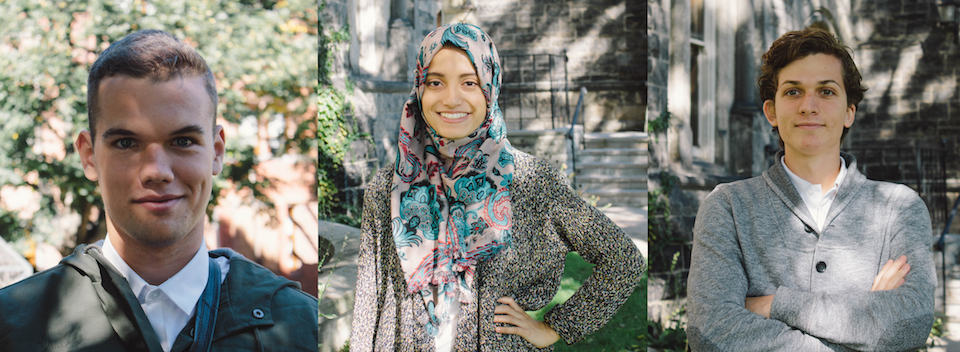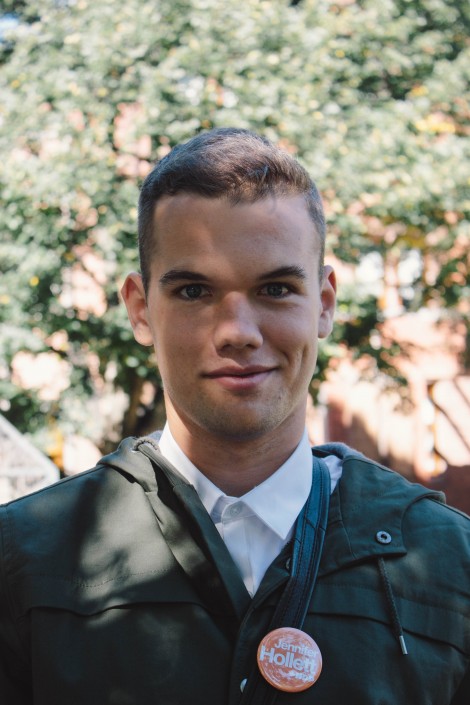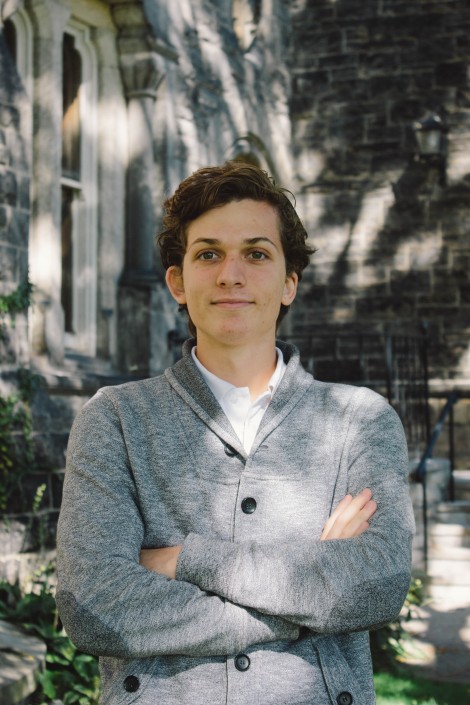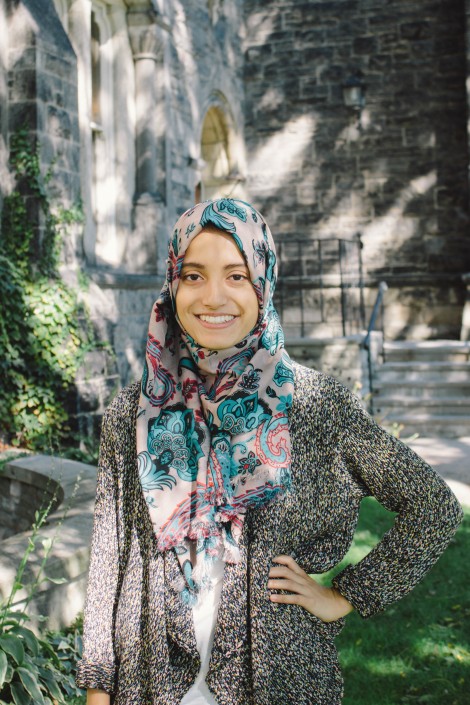As the federal election looms, students at the University of Toronto are being encouraged to get educated and take to the polls to cast their vote for the next Prime Minister. Traditionally, the 18–24 year old age demographic has had the lowest voter turnout, with only 38 per cent of eligible voters casting their vote in the previous 2011 election. The Varsity spoke with three politically-engaged students to get their take on the critical issues in this election, their political motivations, and why it’s important for students to vote.
NDP: Emil Cohen, fourth-year Political Science and Statistics major
What got you interested in politics?
I was suspended in high school for publicly criticizing the lack of support the soccer team received from the Phys-Ed Department. A few students were incensed about this and a free speech protest was arranged. NDP Member of Provincial Parliament Rosario Marchese was the only politician to show up, showing that the NDP are the only party interested in protecting the civil liberties of Canadians.
The protest, coupled with intense media pressure, led to the suspension being removed from my record by the TDSB [Toronto District School Board], and the school soccer team being given more adequate support. This taught me the power of organizing, and permanently peaked my political interest.
How are you involved in the upcoming election?
I am a volunteer with Jennifer Hollett, the NDP candidate for the new riding of University-Rosedale.
In your opinion, what are some of the most important issues that are being discussed in this election?
Some of the most important issues in this election include the environment, the economy, Canada’s place as peacemaker on the world stage, and of course repealing the dangerous and unconstitutional [Bill] C-51.
Why is it important for students to vote?
Young people vote overwhelmingly against the Conservative party of Canada, and the 38.8 per cent turnout of eligible voters between 18 and 24 in 2011 saw the Conservatives win a majority. We need young people to vote if we want to rid the country of Stephen Harper and his bigoted fear driven politics. Politicians see the low youth voter turnout and don’t think it’s worth building a campaign around young voters, and in turn, young people don’t see anything worth voting for. We need to end this vicious cycle and make the politicians realize that we as young people have as much of a voice as any other demographic.
How can students get educated about the election?
Visiting each candidate’s website online and on social media is good start. As someone involved in my local candidate’s campaign, I strongly suggest visiting the campaign office and talking to the people who are there.
Conservative: Ettore Fiorani Denegri, third-year Political Science and Criminology student
What got you interested in politics?
It was a combination of factors. I always grew up hearing about politics. My family, originally from Peru, is more political than most. My father’s side of the family has roots in the APRA [Alianza Popular Revolucionaria Americana] party. Also, coming from a country where politics can be more unstable and consequential, I grew up learning it was important to keep aware of the political situation.
The second thing that got me involved is more simple. A teacher introduced me to the team of my local Conservative MP, Julian Fantino. I was impressed by all he had gone through, and I also agree with the policies he promotes. From there, I got involved more and more.
How are you involved in the upcoming election?
I’ve been volunteering all summer for Conservative MPs. Now, I’m almost exclusively focused on helping get my MP, Julian Fantino, re-elected.
In your opinion, what are some of the most important issues that are being discussed in this election?
There are three big ones for me: the economy, national security, and immigration.
Why is it important for students to vote?
It’s important because we are all affected by government and the economy. We’ll all eventually be looking for jobs, paying taxes, etc. Students should vote for the party they think will best manage the economy, as it is the issue that will be of the most consequence for each and every one of us in the coming years.
How can students get educated about the election?
As students, we should know that one has to use various sources to inform themselves. I don’t believe there’s any source that’s completely unbiased. Keep your media sources diverse. Another important thing to do is to check out what the parties and what their leaders have to say. Hear them in the debates, their announcements, and check out their platforms and promises. From there, you can decide who you think has what it takes to lead this country, which is not an easy job. Finally, talk to friends and people from different sides of the political spectrum.
Liberal: Shahene Patel, third-year Political Science and English Major
What got you interested in politics?
My parents were always very proud to be Canadians. Because of that, they wanted to exercise their rights as Canadians and participate in elections by voting. Even now, my parents reminisce when they immigrated to this country when Pierre Trudeau was Prime Minister and how much they appreciated being welcomed into this nation. So from a young age, my family has always taught me that it’s very important to be engaged and aware of politics—not just in Canada, but internationally. As a result, I began volunteering for the Liberal Party at a young age, not just because my parents were always Liberal supporters, but also because I felt like this is a party that aligns with my own personal beliefs and values.
How are you involved in the upcoming election?
Recently, I began helping campaigns more actively across the GTA. I do what I can to volunteer locally, whether it’s through canvassing, making phone calls to other volunteers, installing signs, etc. I am involved on the national level as well—through organizing rallies, volunteering at the Liberal Party’s open nomination process, calling voters, etc.
In your opinion, what are some of the most important issues that are being discussed in this election?
Personally, issues such as immigration and education are very important to me.
Why is it important for students to vote?
I believe it is important for students to vote because youth voter turnout in the last election was incredibly low. Some of the MPs who won in the last election won by such a small margin that if more students and young people voted, we might have been able to make a difference. It’s important to vote because we are one of the few countries in this world to be privileged enough to participate in elections. We, as Canadians, should be grateful for the opportunity to vote at all—and this election is so important.
How can students get educated about the election?
If students are interested in learning about all political parties in this country, I encourage them to visit the party’s websites, call their local candidates and ask them what they can do for them if elected. I would also suggest attending community debates as well as keeping informed on the national debates. Watch the news, read the newspaper, talk to other students about Canadian politics and to do whatever necessary to keep informed.
These interviews have been edited for length and clarity.





